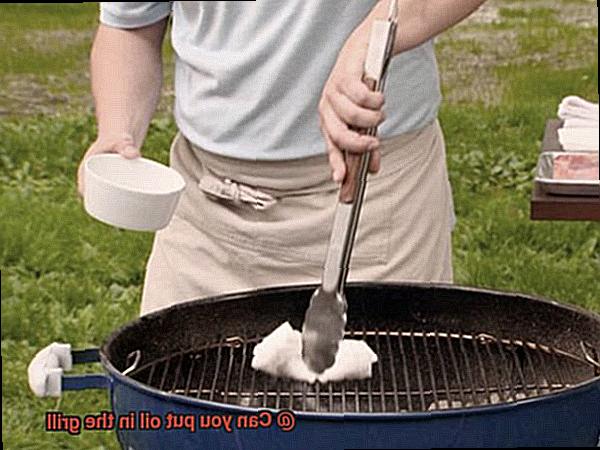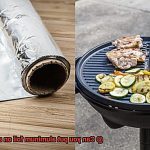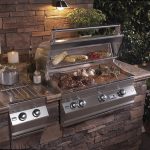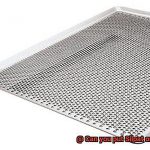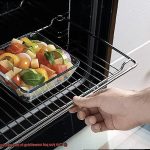Ah, the sweet smell of summer – the sound of sizzling steaks and burgers on the grill. Grilling is a beloved pastime that brings people together over delicious food and good company. But when it comes to greasing up your grill with oil, opinions are divided. Some say it’s a must-do to prevent sticking, while others warn against it due to potential flare-ups and flavor loss. So, can you put oil in the grill? Well, as with most things in life, it’s not a simple yes or no answer.
The type of grill you’re using, what you’re cooking, and your desired outcome all play a role in determining whether oiling up your grill is worth it. In this post, we’ll break down the pros and cons of using oil in your grill game, explore different oils that work best for different grills and foods, and give you some tips on how to do it effectively.
Whether you’re a grilling novice or a seasoned pro looking to up your game, we’ve got something for everyone here. So let’s get started on unlocking the secrets of putting oil in the grill – trust us; your taste buds will thank you.
Contents
Is it Safe to Put Oil in the Grill?
Grilling is a quintessential summer activity that brings people together over delicious food. From juicy burgers to perfectly charred vegetables, grilling is an art that requires both technique and safety precautions. However, one question that often arises is whether it’s safe to put oil in the grill. The answer is not straightforward, but with some simple guidelines, you can ensure a safe and delicious grilling experience.
Firstly, it’s important to understand the risks involved in using oil on the grill. When oil drips onto hot coals or burners, it can cause flames to flare up, potentially leading to a fire. Additionally, using oils with low smoke points can create harmful smoke that can ruin the taste of your food and impact your health.
To minimize these risks, it’s crucial to use high smoke point oils such as vegetable, canola, or avocado oil. These oils are less likely to create harmful smoke and are safer to use on the grill. It’s also important to use a brush or spray bottle to apply the oil instead of pouring it directly onto the grill.
Another factor to consider is your grill’s design. Some grills come with built-in oil management systems that collect excess grease and oil in a drip tray. If your grill has this system, it’s safe to use oil on the grates as any excess will be caught by the tray. If your grill doesn’t have this system, it’s best to avoid putting oil directly on the grates as it can easily catch fire and cause flames to flare up.
If you’re using a charcoal grill, it’s important to wait until the coals have cooled down before disposing of any excess oil. Pouring oil onto hot coals can cause flames to flare up and potentially cause an accident.
Benefits of Using Oil on the Grill
It’s not just about making cooking easier and cleanup a breeze, but it can also take your food to the next level by enhancing flavor. Let’s explore the benefits of using oil on the grill in more detail.
Firstly, oil on the grill helps prevent food from sticking. We’ve all experienced the frustration of delicate fish or veggies sticking to the grates. But with a thin layer of oil on the grates, you can create a non-stick surface that makes flipping and removing your food effortless.
But that’s not all – oil on the grill can also enhance flavor. Applying oil to your food before grilling creates a caramelized crust that adds extra flavor and texture to your meal. Olive or sesame oil can even add their unique flavors to your food.
Using oil on the grill also helps prevent your food from drying out. By creating a barrier between the heat source and your food, oil can lock in moisture and keep your meat juicy and tender. This is especially helpful for leaner cuts of meat like chicken breasts or pork chops.
And let’s not forget about cleanup – oiling the grill grates before cooking reduces scrubbing and scraping when it’s time to clean up. Using high smoke point oils like vegetable or canola oil also reduces smoke residue left behind on your grill grates.
Types of Oils to Use for Grilling
Grilling is a delicious way to cook up your favorite foods, but choosing the right oil can make all the difference in the taste and texture of your meal. Not only that, but using the wrong oil can lead to sticking, burning, and even unsafe flare-ups. Here are five types of oils that are best suited for grilling.
Canola Oil
With its high smoke point and neutral flavor, canola oil is a classic choice for grilling. It can handle high temperatures without breaking down and won’t overpower the taste of your food.
Vegetable Oil
Another great option for grilling is vegetable oil. It has a high smoke point and is widely available and affordable. Just be aware that it has a slightly stronger flavor than canola oil.
Peanut Oil
If you’re looking for an oil with a nutty flavor, peanut oil is a good choice for grilling meats and vegetables. However, it’s important to note that it may not be suitable for those with peanut allergies.
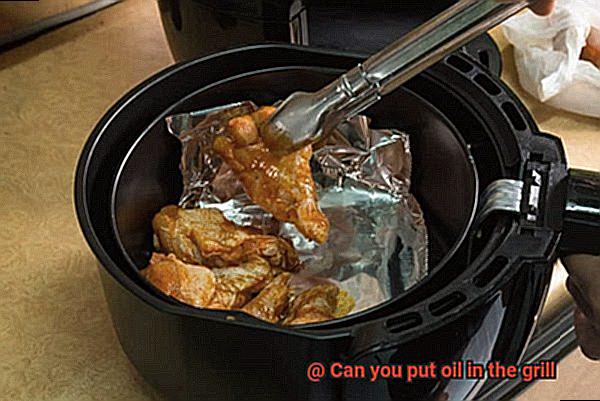
Olive Oil
While not as heat-resistant as some other oils, like canola or avocado, olive oil can still be used for lower heat grilling or as a finishing oil. Its distinct flavor pairs well with Mediterranean-style dishes.
Avocado Oil
Rich in healthy fats and antioxidants, avocado oil has a very high smoke point that makes it ideal for grilling at extremely high temperatures. It has a mild taste that won’t overpower your food.
No matter which oil you choose, it’s important to use it sparingly and apply it to your food rather than directly on the grill grates. Too much oil can cause flare-ups and smoke, which can ruin the taste of your food and even pose safety risks.
How to Apply Oil to Your Food Before Grilling
Grilling is a beloved cooking method that brings out the best in meats, vegetables, and fruits. However, adding oil to your food before grilling can elevate the taste and texture of your meal. Here are some expert tips on how to apply oil to your food before grilling:
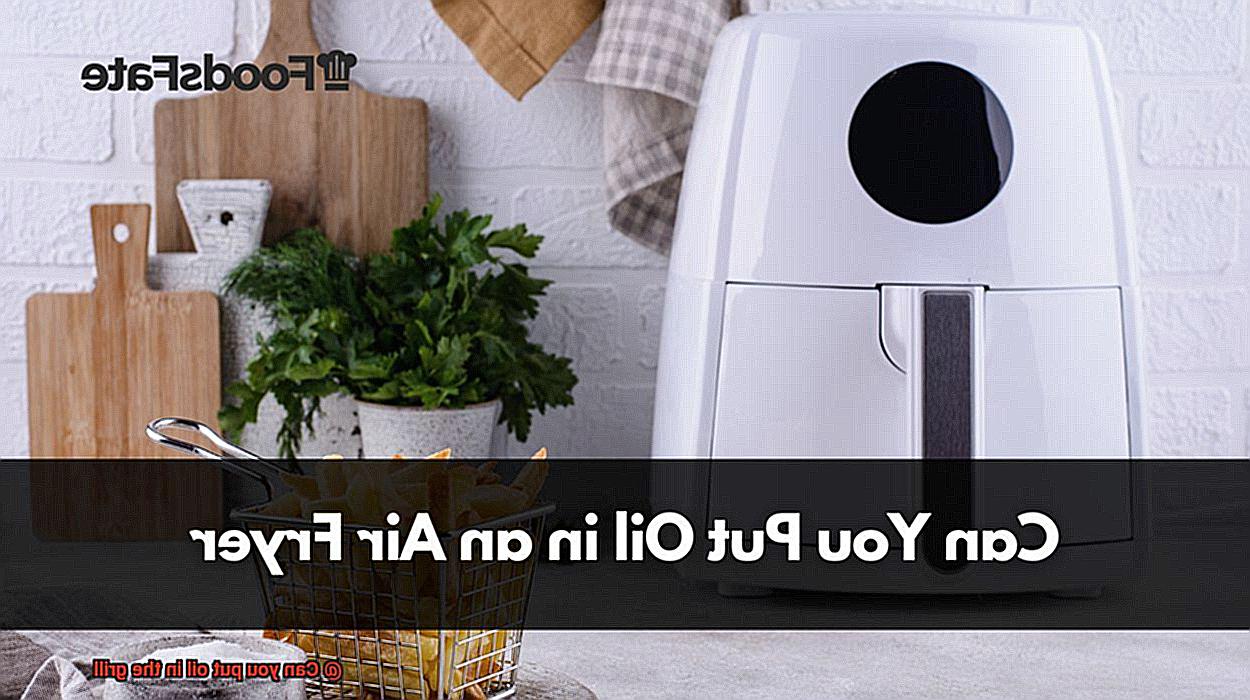
Select the right oil
Opt for high smoke point oils like canola or vegetable oil to avoid burning and excessive smoking that can lead to a bitter taste in your food.
Apply the oil thinly and evenly
To ensure that your food doesn’t stick to the grill grates, use a brush or spray bottle to evenly coat your food with a light layer of oil. This helps to promote even cooking and prevents sticking.
Avoid over-application
Too much oil can cause flare-ups, leading to burnt food and even fire hazards. A thin coating of oil is usually enough for most dishes.
Incorporate oil into your marinade or seasoning mixture
Adding oil to your marinade or seasoning mix not only adds flavor but also helps keep the food moist and tender during the grilling process.
Know when additional oil is necessary
Foods with higher fat content like fatty meats or oily fish don’t need extra oil, while leaner proteins like chicken breast or vegetables may require a light coating of oil.
What If My Grill Doesn’t Have an Oil Management System?
Grilling is an art form, and adding oil to your food can be the brushstroke that elevates your masterpiece. But what happens when your grill doesn’t have an oil management system? No worries, we’ve got you covered with some tips and tricks to help you safely and effectively use oil on a grill without risking flare-ups or fires.
First things first, it’s important to understand that adding oil to your grill without proper precautions can be dangerous. Oil drips onto hot coals or burners can cause flare-ups that can lead to burns or even fires. So let’s make sure we’re taking the necessary steps to keep ourselves and our grills safe.
One solution for grills without oil management systems is to use a drip pan or tray. Simply place a pan or tray underneath your food to catch any excess oils or drippings. This will help reduce the risk of flare-ups and make cleaning up easier.
Another option is to use a spray bottle filled with oil and mist your food lightly before grilling. This will help add flavor and prevent sticking without causing excessive dripping. But be careful not to overuse the spray bottle as this can lead to flare-ups.
If you’re looking for an alternative to using oil altogether, non-stick cooking sprays may be the way to go. These sprays are specially formulated to withstand high heat and prevent sticking without causing flare-ups. However, it’s important to choose a non-stick cooking spray that is specifically designed for grilling as some sprays may contain ingredients that are not suitable for high heat cooking.
When it comes to using oil on a grill, choosing the right type of oil is also important. Some oils have a lower smoke point than others, meaning they may burn at high temperatures and produce harmful compounds. Oils with a higher smoke point, such as canola, avocado, and grapeseed oil, are better suited for grilling.
In addition, applying oil carefully and evenly is key. Thinly coat your food with oil using a brush or paper towel to ensure even coverage. Incorporating oil into marinades or seasonings can also add flavor and reduce the amount of oil needed.
Safety Tips When Using Oil on a Charcoal Grill
Grilling is a beloved pastime for many, but it’s important to prioritize safety when using oil on a charcoal grill. Here are five crucial safety tips to consider:
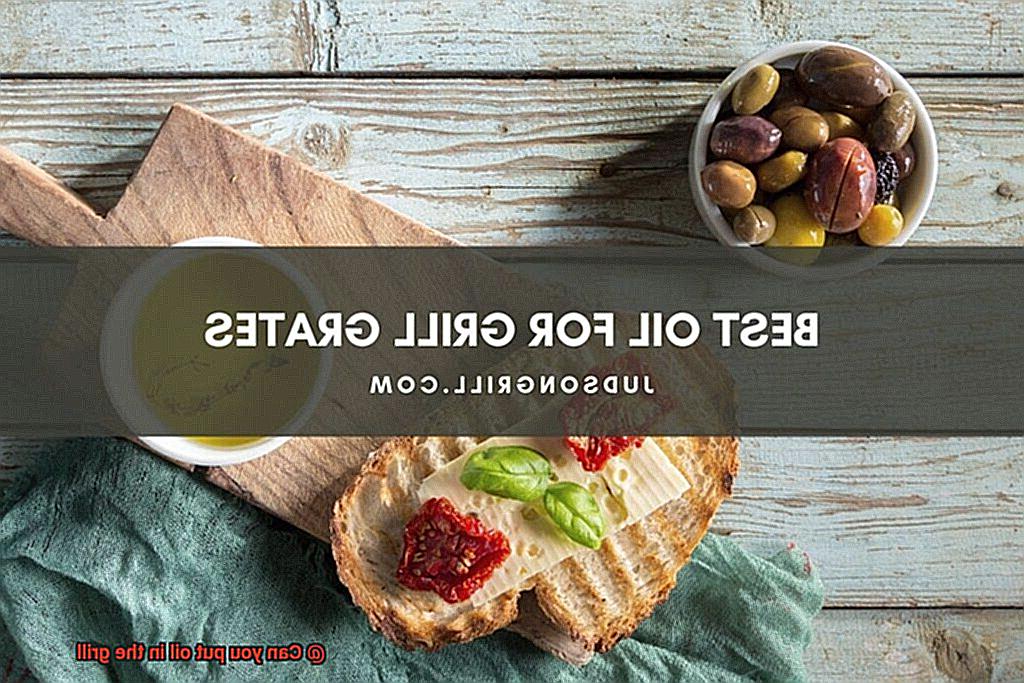
Choose the right oil
It’s important to choose an oil with a high smoke point, such as vegetable oil, canola oil, or peanut oil. These oils can withstand high temperatures without burning and causing a fire. Avoid using oils with low smoke points like olive oil or butter as they can easily catch fire and cause a dangerous situation.
Apply oil safely
Pouring oil directly onto hot coals or grates can result in sudden flare-ups and potential burns. Instead, dip a clean cloth or paper towel in oil and use tongs to rub it onto the grates before placing food on them. Alternatively, use a spray bottle to mist the oil onto the grates.
Keep an eye on your grill
Any excess oil that drips onto the hot coals can cause flames to flare up and potentially start a fire. To avoid this, regularly clean the grates and use a drip pan to catch any excess oil.
Keep a fire extinguisher nearby
It’s always better to be safe than sorry when dealing with potential fire hazards on a charcoal grill. Make sure to keep a fire extinguisher nearby in case of an emergency.
Wait for coals to cool down
After you’re done cooking, wait until the coals have cooled down before disposing of any excess oil. Pouring oil onto hot coals can cause flames to flare up and potentially cause an accident.
Common Mistakes to Avoid With Oil and Grills
Grilling is a beloved pastime for many, but using oil on your grill can be a slippery slope if you’re not careful. There are some common mistakes that people make when using oil on their grills that can lead to dangerous situations. Here are some tips to help you avoid these pitfalls and achieve safe and delicious grilling:
First off, pouring oil directly onto hot grates is a recipe for disaster. This can cause the oil to ignite and create a dangerous fire. To stay safe, wait until the grill has cooled down before applying oil. Your safety should always come first.
Another mistake is using too much oil. While oil is necessary to prevent food from sticking, using too much can cause flare-ups and create excessive smoke, which can leave an unpleasant taste on your food. Instead, use a small amount of oil and spread it evenly onto the food or grates.
Using the wrong type of oil is also a common mistake. Oils with low smoke points, such as olive oil, can burn quickly at high temperatures and create a bitter taste. It’s best to use oils with high smoke points, such as vegetable or canola oil, which won’t break down at high temperatures.
Lastly, neglecting to clean your grill grates properly after using oil can lead to a buildup of residue that can cause future flare-ups and create an unpleasant taste on your food. To ensure safe and flavorful grilling, it’s important to clean the grates thoroughly after each use.
0MnUYbc1fKE” >
Conclusion
In conclusion, the age-old question of whether or not you should put oil in your grill is a bit more nuanced than a simple yes or no. It all depends on factors such as the type of grill you’re using, what’s on the menu, and what you hope to achieve with your cooking.
Adding oil to your grill can be a game-changer in terms of flavor and preventing food from sticking. It also helps keep your food moist and juicy, rather than dry and overcooked. However, it’s important to choose oils with high smoke points like vegetable, canola, or avocado oil to avoid any harmful smoke or flames.
When using oil on a charcoal grill, safety should always be top of mind. Make sure you’re applying the oil carefully and evenly to avoid flare-ups. And don’t forget to keep an eye on your grill at all times and have a fire extinguisher nearby just in case.
Overall, using oil on the grill can take your grilling experience to new heights. With some expert tips and guidelines for safe application, you’ll be able to enjoy delicious meals with friends and family all summer long.

